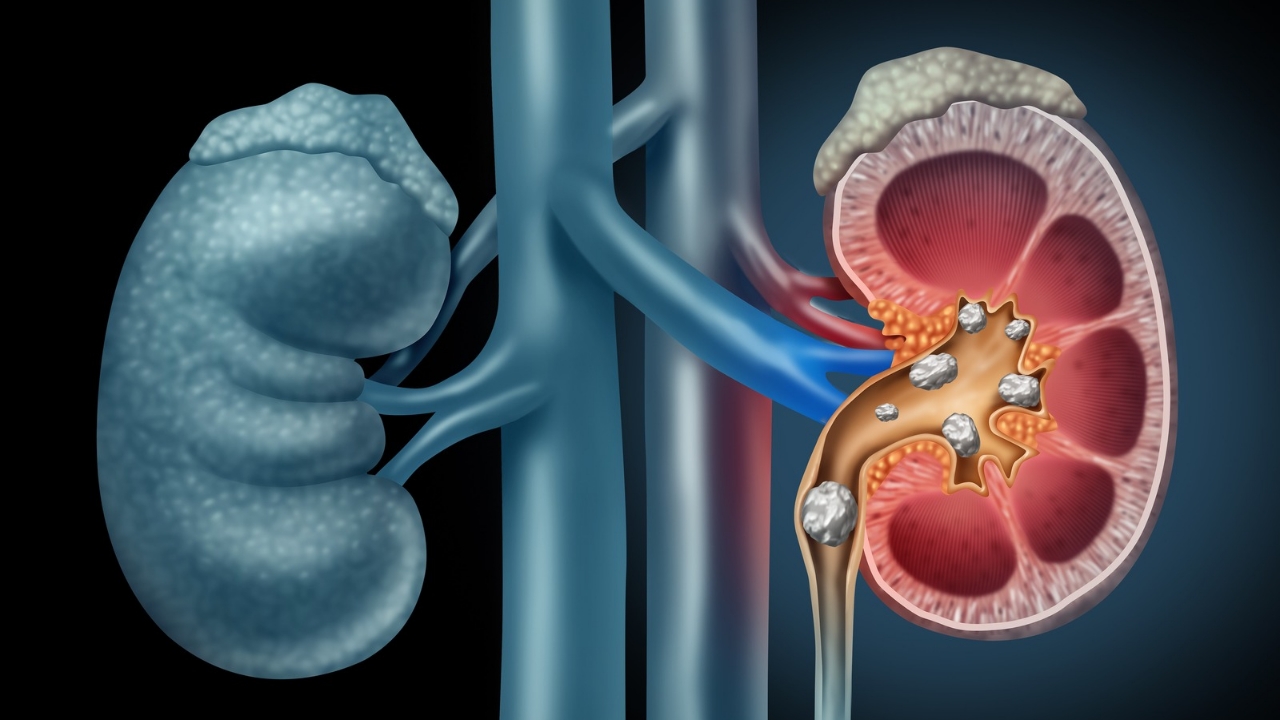When you hear the term “kidney stones,” you might cringe at the thought of discomfort.
These tiny, rock-hard mineral deposits can cause excruciating pain as they move through your urinary tract, often catching people by surprise.
If you’ve ever been struck by a kidney stone, you’ll understand why avoiding them is high on anyone’s health to-do list.
And if you haven’t experienced it yet, consider yourself lucky, but don’t get too comfortable—these sneaky little stones can affect anyone.
The good news is that Kidney stones are often preventable.
Yes, you heard that right.
There are several simple, everyday habits that can help reduce the risk of kidney stones forming in the first place.
When you consider the agony that comes with passing a kidney stone, taking steps to prevent them seems like a no-brainer, right?
And trust me, prevention is not only better than the cure—it’s also a whole lot cheaper and far less painful.
Whether you’re looking to avoid a repeat episode of kidney stones or just want to give your kidneys the best possible care, this guide is for you.
We’ll walk you through eight practical, easy-to-implement strategies to help keep your kidneys happy and stone-free.
It’s all about taking proactive steps now to avoid those sleepless, pain-filled nights later.
So grab a glass of water (you’ll see why soon enough), and let’s dive into how you can avoid kidney stones and keep your urinary system in tip-top shape.
1. Drink Water Regularly
First up on the list is drink water. It sounds simple, but it’s incredibly effective.
Keeping yourself hydrated is the single most important step in avoiding kidney stones.
Here’s why: the more water you drink, the more diluted your urine becomes. Diluted urine means that minerals and salts are less likely to bind together and form the dreaded stones.
Now, how much water are we talking about? Aim for 8 to 12 cups a day.
This amount ensures your urine stays light yellow or pale in color its also a good indicator that you’re drinking enough.
But remember, on hotter days or when you’re working up a sweat, you’ll need to increase your intake.
When in doubt, just sip more water. Think of it as giving your kidneys a little extra help.
Hydration doesn’t just keep kidney stones away—it benefits your whole body.
You’ll feel more energetic, your skin will thank you, and overall, your system will run like a well-oiled machine.
2. Cut Down on Salt
We all love a little salt to flavor our meals, but your kidneys? Not so much.
High salt intake can make your kidneys release more calcium into your urine, which is a key contributor to kidney stone formation.
That’s why cutting back on salt is a vital part of keeping your kidneys healthy.
Processed foods are often sneaky sources of salt.
Think about your favorite bag of chips, deli meats, canned soups, and fast food meals.
All of these pack a surprising amount of sodium. A helpful tip o have for you is to Start reading food labels!
Look for lower-sodium versions of your favorite items. You don’t have to eat bland meals—just be smart about where the salt in your diet comes from.
Small swaps, like seasoning your food with herbs or lemon instead of salt, can make a big difference.
Plus, once you reduce your salt intake, your taste buds will adjust, and you may even find yourself preferring the natural flavors of food.
3. Don’t Skip on Calcium
Here’s where it gets a little tricky. You might think that since calcium contributes to stone formation, you should avoid it altogether. But that’s not exactly true.
Getting enough calcium from your diet can actually prevent stones!
Calcium binds to oxalate in the gut, which stops it from being absorbed into the bloodstream and later forming stones in the kidneys.
The key is to get your calcium from foods, not supplements.
Dairy products like milk, yogurt, and cheese are excellent sources.
You can also find calcium in leafy greens like kale. But if you’re thinking about taking calcium supplements, talk to your doctor first.
In some cases, these supplements can do more harm than good.
4. Limit Foods High in Oxalate
Some kidney stones form from a mineral called oxalate, which is found in certain foods.
If you’re prone to kidney stones, you may want to keep an eye on how much oxalate-rich food you’re consuming.
Common culprits include spinach, beets, nuts, and chocolate.
But don’t panic! This doesn’t mean you have to swear off your favorite dark chocolate or stop enjoying a hearty salad.
The trick is moderation. Pairing oxalate-rich foods with calcium-rich ones helps minimize the risk of stone formation.
So, go ahead and enjoy that salad—just toss in some cheese or have a glass of milk with it!
5. Eat More Fruits and Vegetables
Here’s some more good news for you, fruits and veggies are your kidneys’ best friends.
They help make your urine less acidic, which can prevent certain types of stones from forming.
Plus, they’re packed with nutrients that benefit your body in countless other ways.
Citrus fruits, in particular, are superstars in the fight against kidney stones.
Oranges, lemons, and limes are rich in citrate, a compound that helps prevent stone formation.
Squeeze some fresh lemon into your water for a refreshing drink that also gives your kidneys a boost.
Adding more fruits and vegetables to your diet is a win-win.
You’ll not only reduce your risk of kidney stones but also enjoy improved digestion, better skin, and an overall sense of well-being.
6. Maintain a Healthy Weight
Carrying extra weight can increase your risk of kidney stones.
This happens because being overweight can change the chemical balance of your urine, making it easier for stones to form.
But don’t worry—there’s no need for extreme diets or workout routines.
Aim for consistency. Try to get at least 30 minutes of physical activity most days of the week.
Even a simple walk around the neighborhood can make a big difference.
Exercise not only helps you maintain a healthy weight but also keeps your kidneys in good working order.
A balanced diet that includes whole grains, lean proteins, and plenty of fruits and vegetables can help with weight management.
And when your weight is in check, your kidneys have an easier time doing their job.
7. Don’t Self-Medicate with Supplements
Before you add any new supplements to your routine, it’s wise to check with your doctor.
Some vitamins and supplements can actually increase your risk of kidney stones.
For example, high doses of vitamin C can lead to stone formation, especially if you’re prone to oxalate stones.
It’s easy to assume that more is better when it comes to vitamins, but that’s not always the case.
Your kidneys are already working hard to filter waste from your blood, and some supplements can add extra strain.
When in doubt, get professional advice to make sure you’re doing what’s best for your body.
8. Limit Alcohol and Quit Smoking
Alcohol and smoking both have negative impacts on your kidneys.
Drinking too much alcohol can lead to dehydration, which is one of the primary risk factors for kidney stones.
When you’re dehydrated, your urine becomes more concentrated, and this increases the likelihood that stones will form.
Smoking, on the other hand, can raise the levels of calcium and uric acid in your urine—both of which can contribute to stone formation.
Cutting back on alcohol and quitting smoking are two lifestyle changes that benefit your overall health and give your kidneys the best chance to function properly.
In conclusion
Kidney stones aren’t just painful—they can also be costly to treat.
Hospital visits, medications, and procedures can add up quickly. That’s why prevention is so important.
By making small, manageable changes to your diet and lifestyle, you can save yourself a lot of pain (and money) down the road.
Your kidneys are incredible organs that work tirelessly to filter waste and keep your body balanced.
Treat them kindly by staying hydrated, eating a healthy diet, and making smart lifestyle choices.
After all, a little prevention goes a long way when it comes to kidney stones. Stay proactive, and your kidneys will thank you!
if you found this article helpful, kindly share it with your loved ones. it encourage me to write more. And before You leave, check out the recommended reading below, am sure you will find something that will interest you. THANKS



